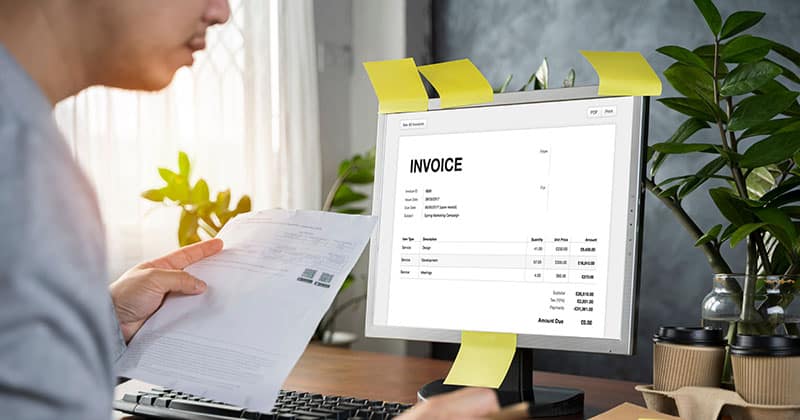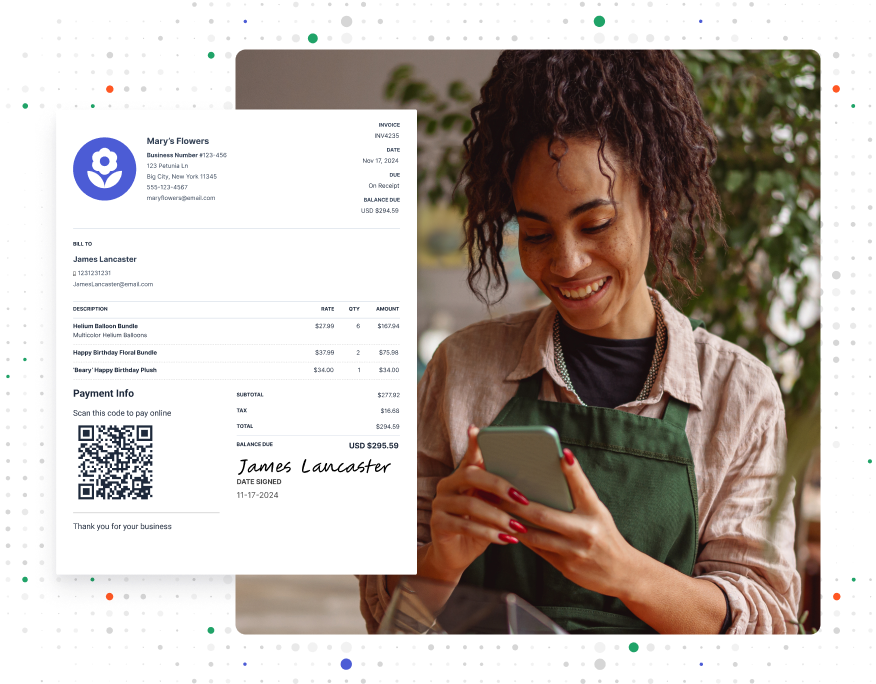What Is Invoice Factoring?

Are you running a small business? Do you sometimes worry about money?
If yes, this article is for you. We’re going to talk about something called invoice factoring.
Imagine this: You do a job and send an invoice. But then, you wait a long time to get paid. This waiting can be hard for your business. Invoice factoring helps with this. It’s a way to get your money faster.
In this article, we will cover several important topics. First, we’ll explain what invoice factoring is. Then, we’ll show you how this process works.
We’ll also discuss the pros and cons. Every choice has pluses and minuses, and it’s important to know both.
After that, we’ll give you tips on how to find the best factoring company for your business. And finally, we’ll help you decide if invoice factoring is the right choice for your business.
Ready to learn more? Let’s dive in!
What Is Invoice Factoring and How Is It Used?
Invoice factoring is a way for businesses to get money.
It works like this: A business sells its invoices to a factoring company. This company pays most of the invoice amount to the business right away.
Then, the factoring company collects the full amount from the customer later.
This is helpful for businesses that need cash fast and can’t wait for customers to pay. For example, small or medium-sized businesses often use invoice factoring.
They do this when they need money to pay for things immediately. They might need to buy supplies or pay workers. It’s a common way to manage cash flow.
How Much Does Invoice Factoring Cost?
The cost of invoice factoring varies.
Factoring companies usually charge a fee based on the invoice amount. This fee can be between 1% to 5% per month.
But, there can be other fees too. These might include service fees or fees for starting the factoring agreement.
The specific fee depends on several things, including:
- The invoice amount
- How much the business sells
- The creditworthiness of the customer
The type of factoring agreement matters, too. There are two main types of agreements: recourse and non-recourse.
In a recourse agreement, if the customer doesn’t pay the invoice, the business has to pay back the money to the factoring company.
In a non-recourse agreement, the factoring company takes the risk. If the customer doesn’t pay, the company bears the loss. Because of this higher risk, non-recourse agreements often have higher fees.
Remember, the exact cost can vary, so it’s important to understand the details of the agreement.
How Can Invoice Factoring Help Your Business?

If your business often waits for customers to pay their invoices, you might face cash flow issues. This is where invoice factoring shines.
It gives you money fast, without waiting for 30, 60, or even 90 days. You can use this money for anything—paying workers, buying equipment you need, or just keeping your business running smoothly.
How does this help your business thrive? Here are six key benefits:
- Quick Money, Easy Process: Factoring gets you money fast, usually in about a week. It’s easier to get than a loan, especially if your credit isn’t perfect.
- More Cash, No Debt: It turns your unpaid invoices into cash without adding debt. This means you get money you’re already owed, helping you manage your cash better.
- Less Work on Bills: A factoring company deals with collecting unpaid invoices. This means less work for you, so you can focus on important things like growing your business.
- Flexible and Accessible Funds: The money you get can be used for anything in your business. It’s also great for newer businesses or if your credit history isn’t strong.
- Good for Your Business’s Image: Regular cash from factoring can make your business look more stable. This can impress investors and help you pay your bills on time, which is good for your credit.
- Protection from Unpaid Bills: Factoring checks your customers’ credit and handles bill collection. This reduces the risk of not getting paid and keeps your money flow more stable.
What Are the Advantages and Disadvantages of Invoice Factoring?
Let’s weigh the pros and cons of invoice factoring.
Advantages of Invoice Factoring
Here are the benefits of invoice factoring.
Improves Cash Flow
Factoring changes your waiting invoices into quick cash. Instead of waiting weeks or months, you get money soon.
For instance, if you completed a big job and the payment is due in 60 days, factoring can give you most of that money now. This is really helpful when you need cash for urgent needs like buying materials or paying employees.
RELATED ARTICLE: How to Charge Late Fees on an Invoice (with Example)
Helps a Growing Business
When you have more cash, you can accept more work. This is crucial for your business to expand.
Picture getting a large order. Usually, you might hesitate because of cash flow. But with factoring, you get the funds to start the job right away. This means your business can grow faster and take on more opportunities.
Boosts Productivity
Without the worry of unpaid invoices, you can concentrate on your business. More focus means more productivity.
For example, instead of spending time tracking down payments from clients, you can use that time to improve your services or create new products. This enhanced focus can lead to better business outcomes.
FROM ONE OF OUR PARTNERS: The 7 Best Invoice Software Options for Small Businesses
Improves Customer Relationships
Chasing payments can strain relationships with customers.
With factoring, the factoring company takes on the task of collecting payments. This keeps your interactions with customers positive and focused on future business rather than debts. It helps in maintaining long-term, healthy customer relationships.
Reduces Stress
Consistent cash flow takes away the worry about when money will come in. This reduces stress for both you and your team.
A less stressed team is often more productive and happier, which can lead to better work quality and a more positive work environment.
Streamlines Budgeting
Knowing when and how much money you’ll have makes budget planning easier.
You can reliably plan for expenses like rent, supplies, and salaries. Using an expense tracker can help contribute to streamlined budgeting. This regularity in finances helps in making more informed and confident financial decisions.
Enables Future Planning
Stable finances allow you to look ahead and plan for growth.
With dependable cash flow, you can consider expanding your business, introducing new products or services, or hiring additional staff.
Factoring provides the financial security to make these plans with confidence.
Disadvantages of Invoice Factoring
Here are the drawbacks.
Fees
Factoring costs money. There are different fees, like application fees, termination fees, and fees for credit checks. Weekly and monthly fees can add up, too.
For example, if you factor a $10,000 invoice with a 5% monthly fee, you pay $500 just for that month. This can be costly, especially for small businesses with tight budgets.
Limitations
There are rules on which invoices you can factor. Sometimes, you can’t factor too many invoices from just one customer.
Let’s say you have a big customer who makes up most of your sales. If you can’t factor all their invoices, you might not get all the cash you need. This limitation can be tricky if most of your business comes from a few big customers.
Less Customer Interaction
When a factoring company collects payments, you talk less with your customers about money. This might seem good, but it also means you have less control over that part of your business.
You might not know right away if a customer is unhappy with this arrangement. You’re also relying on the factoring company to interact professionally and respectfully with your customers.
Dependence
Relying too much on factoring can be a problem. It’s like getting used to an advance on your paycheck.
For instance, if you always use factoring, you might not notice if your business is actually losing money. This over-reliance can hide real problems, like low sales. Breaking this cycle can be hard.
What Is the Difference Between Invoice Factoring and Financing?
We’ve answered the question, “what is invoice factoring?” Now, let’s explore the difference between factoring and financing.
Invoice financing is also a way for businesses to get money from their unpaid customer invoices. Instead of waiting for customers to pay in full, businesses can borrow money using their invoices as collateral. It’s like a short-term loan based on unpaid invoices. It gives them quick cash to cover expenses.
They pay a fee to the lender for this service but still keep ownership over their invoices. This is distinct from invoice factoring, in which a business sells its invoices to a third party.
Choosing between invoice factoring and financing depends on your business’s specific needs and preferences. Factoring can provide immediate cash flow and relieve your business of having to make collections, but it involves selling invoices at a discount.
Financing allows your business to retain ownership of invoices while accessing funds, but you have to continue managing collections.
How to Choose the Best Invoice Factoring Companies

The best factoring company for you depends on your specific business needs. Take your time to research and choose wisely.
Here are some important facts and guidelines. These can help you select the right invoice factoring company for you.
How Do Factoring Companies Work?
Invoice factoring companies help businesses by buying their unpaid invoices. This lets businesses get cash right away, instead of waiting for customers to pay.
Each factoring company is different. Some focus on specific industries like trucking or construction.
There are two main types: independent companies and bank-owned ones.
- Independent factoring companies are not part of a bank. They usually specialize in certain business areas.
- Bank-owned companies are part of a bank.
They both make money by charging a fee when they collect the invoice payment. It’s important to see which type fits your business better.
The services offered by factoring companies include:
- Invoice Factoring: The company buys your unpaid invoices and pays you most of their value upfront. They collect the full amount from your customers later.
- Accounts Receivable Financing: This is similar to invoice factoring but works more like a credit line based on your invoices.
Bank-owned factoring companies might offer additional services, like traditional loans.
Making the Right Decision for Your Business
Picking a factoring company is important. Here’s how to do it in simple steps:
- Experience: Check how long the company has been in business. A well-established company usually means more reliability.
- Terms and Fees: Understand their charges, fees, and funding limits. Look at all the costs involved, not just the main fee.
- Speed and Frequency of Funding: Assess how quickly and often they will fund your invoices. This is vital for maintaining cash flow.
- Customer Interaction: Find out how the company will interact with your customers. Good customer service is crucial, as they will be dealing with your clients.
- Funding Source: Determine whether the factoring company is a bank or an independent middleman. Each has its own advantages and disadvantages.
- Flexibility: Consider if they allow you to select specific invoices for factoring. Find out if they offer short-term contracts. Flexibility can be important for adapting to your business’s changing needs.
- Industry Expertise: Opt for a company that has experience in your specific industry. This can lead to more tailored services and understanding of your unique challenges.
- Integrity: Ensure the company is honest and transparent about their services and fees. Integrity is crucial for a trustworthy business relationship.
The right factoring company for you will depend on your unique business requirements. Take the time to research and compare different options.
4 Tips for Figuring Out If Invoice Factoring Is Right for You
Still not sure if invoice factoring is a good idea for your business? Here are four tips to help you make the best decision.

1. Do You Struggle with Cash Flow?
Think about your cash flow. This means the money coming in and going out of your business.
It can be hard if you often find yourself waiting for customers to pay their invoices. This wait can slow down your business.
Invoice factoring can help. It gives you cash quickly for the invoices.
Not sure whether cash flow is limiting your business? Here are some signs to look for:
- Delayed Projects. If you often have to wait to start new projects because you don’t have enough money, it’s a sign. This can happen when you are waiting for customers to pay.
- Paying Bills Late. Do you find yourself paying your bills late? This could be because you’re waiting for money from your invoices.
- Stress About Money. Do you worry a lot about having enough money to run your business? This is a big sign of cash flow problems.
If these things happen in your business, then invoice factoring might be the answer.
RELATED ARTICLE: What Is Invoice Reconciliation?
2. Are You Looking to Streamline Your Invoicing Process?
Consider your invoicing process. Is it easy or hard?
If it takes a lot of time or is confusing, you might need a change. Using an invoice generator can make this easier.
Tools like Invoice Simple help you create invoices fast and without trouble. You just put in the details, and it makes a professional invoice for you. This can save you time.
Plus, when you use invoice factoring, the process gets even smoother.
The factoring company can work with your invoices directly. This means less work for you and quicker payments.
3. Do You Spend Too Much Time Chasing Unpaid Invoices?
If you spend lots of time trying to get customers to pay their bills, factoring might be the solution.
Chasing unpaid invoices takes time. Time is important for your business. If you use invoice factoring, you get paid faster. This means less time asking for payments.
Here’s what you could do instead:
- Enhance your marketing efforts. Use the extra time to create new marketing strategies. This can attract more customers and increase sales.
- Improve customer service. Better service leads to happier customers. Happy customers often come back and recommend your business to others.
- Strategic planning. Plan how to grow your business. This could be expanding your services or entering new markets.
- Innovate your offerings. Develop new services or products. Innovation keeps your business ahead of competitors.
- Skill development. Learn new skills or train your team. This can improve your business in many ways.
Using invoice factoring gives you more time for these important things. It helps your business grow and succeed.
RELATED ARTICLE: When Should You Use Progress Invoicing?
4. Are You Missing Out on Big Jobs or Opportunities?
Sometimes, you might not have enough money to take on big jobs. This can happen if you’re waiting for other customers to pay.
Invoice factoring gives you money faster. You don’t have to wait for customers to pay their bills. This can help you:
- Say Yes to Big Projects: You can take on bigger jobs with more cash.
- Buy What You Need: You can buy supplies or hire more people.
- Grow Your Business: With more work, your business can grow.
- Take Advantage of Opportunities: With more cash, you can grab exciting opportunities.
If missing out is a problem, think about invoice factoring. It can help you get those big jobs and grow your business.
3 Take-Action Tips
Ready to take action? Here’s how:
1. Assess This Month’s Cash Flow
Look at your money situation for this month. Check how much money is coming in and going out.
See if you have enough to run your business. If it’s tight, you might need help. This is where invoice factoring can be useful.
2. Consider How Many Unpaid Invoices You Have Now
Count how many invoices you sent but haven’t been paid for yet. It can be hard if there are many, and you’re waiting for the money.
Knowing this number helps you understand your need for invoice factoring.
3. Research Invoice Factoring Companies
Start looking up companies that do invoice factoring. See what services they offer. Compare different companies. Find out how they can help your business.
Good research helps you make a smart choice.
Start Your First
Invoice Today
Create customized and professional
invoices and connect with clients
